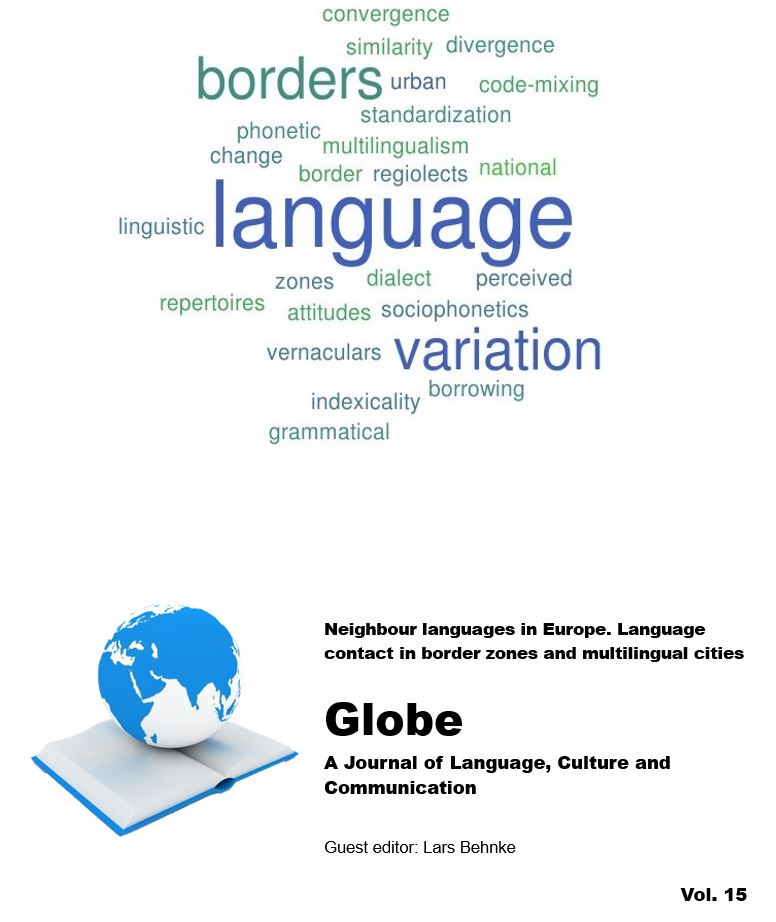Negotiating local in-group norms in times of globalization. Adnominal gender variation in two urban youth varieties in the Netherlands
DOI:
https://doi.org/10.54337/ojs.globe.v15i.8041Abstract
This paper discusses variation in adnominal gender marking in two urban youth varieties in the Netherlands, i.e., Moroccan Dutch in the city of Gouda and leveled local dialect, Brabantish, in the city of Eindhoven. In both settings, linguistic practices are influenced by language contact with Standard Dutch, the dominant language in society, resulting in variation patterns such as omissions and overgeneralizations (i.e., hyperforms). Interestingly, we find overgeneralizations of common gender determiners in Moroccan Dutch, as described in previous research, but also of neuter gender determiners. This hypercorrect usage of the (neuter) prestige variant contrasts with the variation found in the Brabantish variety, as the Eindhoven speakers tend to overuse the local dialect form instead of the standard variant. However, we show that both variation patterns may well be driven by the same underlying mechanism of (re-)indexicalization. Data from speech recordings and online peer conversations as well as focus group discussions reveal that in both cases the gender feature acquires different indexical meanings, depending on the register and stylistic practices speakers are involved in. These indexical meanings are not fixed, but result from a dynamic process of negotiating in-group norms on the local level of peer interactions.
Downloads
Published
Issue
Section
License
Articles published in Globe: A Journal of Language, Culture and Communication are following the license Creative Commons Attribution-NonCommercial-NoDerivs 3.0 Unported (CC BY-NC-ND 3.0). Authors retain copyright and grant the journal right of first publication with the work simultaneously licensed under a Creative Commons Attribution License: Attribution - NonCommercial - NoDerivs (by-nc-nd). Further information about Creative Commons


